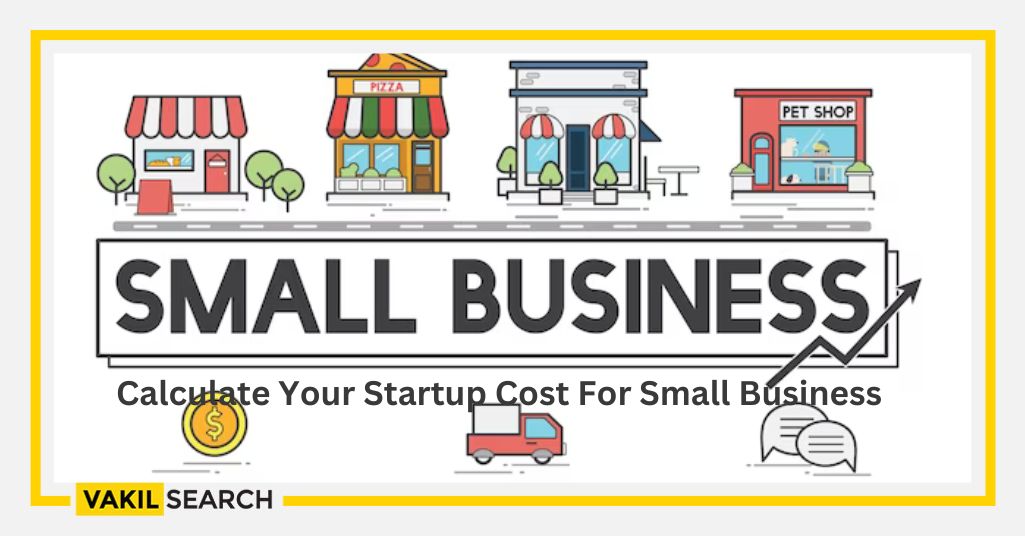It can be fascinating to launch a brand-new company. The excitement of starting a business is typically accompanied by the worry that it won't be successful, especially for first-time entrepreneurs.
You may be concerned about the costs of launching your firm or the potential for long-term profits. New business entrepreneurs often plan without thinking if they can pay initial fees. This usually results in the company being unable to stay in business. Inadequate early financial planning might threaten a company’s stability. If you want to establish a successful business, be it any business ranging from a business plan for salon to any larger entity, this blog will show you how to figure out how much money you’ll need to get going. Knowing the startup cost for small business is essential for better productivity.
How much money do you think you’ll need to launch your company? Where can you find a breakdown of the initial investment required? It has all you need to know. Determining the initial cost will help you attract clients, request money, and estimate when you’ll make a profit. Perfect planning is essential for a successful startup launch. If you don’t know where to start, research will help.
Essential Factors to consider when starting a Small Business
All the money you’ll need to get your business up and running is part of your business start up costs. Efficient business ideas can aid in budgeting startup costs, estimating operating expenses and sales, and attracting investors.
- Estimate profits
Predicting future earnings is essential for making informed decisions about allocating resources and running a profitable company. Profitability is measured in numerous ways, although net income is the most prevalent. After deducting all costs, liabilities, and other revenue sources, the remaining amount is the net income.
- Analyse break-even
The break-even point is the point at which profits are equal to operating expenses. As product or service demand rises or falls, this may shift. This is a standard method used by investors to determine when they will reach “break-even” on an investment.
- Secured loans
Sometimes small businesses like supermarket businesses cannot get the loans they need because of issues with their credit or cash flow. Your business’s launch expenditures will dictate the size and terms of the loan you will need. Lenders can ask you to detail your plans for using the money. It shows lenders you’re organized and prepared.
- Attract capitalists
Entrepreneurs can either self-fund or “bootstrapping” their small firms, but investors can also be helpful. Investors can offer capital for your company, increasing the likelihood of success for both parties. Like loans, a company plan with determined costs might attract investors.
- Save money on taxes
Several options exist for offsetting business costs against taxable income, which can be found on the IRS’s website. These provisions partially offset the costs associated with starting up a firm. In doing so, you can reduce your monthly expenses such as:
- Creating a business: site selection, market and product research, competition survey.
- Starting a business requires money for staffing, supplies, advertising, and legal representation.
- Insurance, registration and other charges: Legal, state, director, and accountant costs may all be part of this total.
Calculate your Startup costs
Most companies operate as traditional retail, internet marketplaces, or service industries. The initial investment needed to launch a new company is highly variable. A store selling clothes may require window dressing, whereas a bakery will require appliances.
Business startup list
- Property or rental
Consider if your company needs a storefront or can function remotely. You might also look into coworking options if you need a dedicated area.
- Materials and tools
That includes computers, machines, and furniture for an office or store.
- Utilities
Utility costs can change based on factors, including your company’s location and services. Certain companies may need more power to function.
- Authorisations, fees, and fines
A company’s legal registration fees may vary based on its type of operation. Costs also differ from one state to the next. The cost of obtaining and maintaining licences and permissions may also be incurred.
- Inventory
Startup and continuing inventory expenditures should be considered.
- Remuneration of Workers
Consider your own and staff’ salaries. The cost of living affects wages as well. Don’t forget to include the price of hiring and training new employees.
- Researching the Market
Studying the market is essential for assessing its current state. Collecting data for use in product planning, marketing, customer service, and other areas is necessary.
- Advertising
Expenses for ad campaigns often differ depending on where they are placed. You must decide how much and what kind of advertising you will do. Digital and classic methods of promotion are both available.
- Website
To get your firm up and running, you’ll need to pay out money for things like a domain name and maybe web design.
Assets and Expenses
These payments might be viewed as either liabilities or investments. If you’re planning to deduct any of your starting costs from your taxes, it’s essential to categorise those costs properly. Assets are not removed from income.
- An asset is any item owned by a company that still has worth after a year of use or more. Real estate and furniture are possible examples.
- Expenses are things your firm pays for and uses but does not own. Costs such as rent, personnel pay, and legal fees are examples.
Calculate How Much You Will Need to Spend
Research is required to arrive at a reliable estimate of the costs associated with launching a firm. A permit or license will have a specific cost associated with it. Employee salary and the price of maintaining a stock of goods are two examples of variable expenses.
Consult with advisors about the accuracy of your expense projections about those of comparable businesses. The right mentor can help you sort through the costs associated with getting your business ideas in India off the ground and identify those that can’t wait until your company is more established.
Add Up Your Costs for a Financial Outlook
After estimating all your costs, divide them into recurring categories and one-time. Classifying your expenses helps you predict how much money you’ll need. Also, this aids in preventing any unanticipated expenditures.
One-Time Costs
Expenses that come up only once in your budget are “one-time” costs. Many of these are tax-deductible. For example,
- Records, computers, machines, or vehicles
- Workstations, cabinets, and retail display fixtures
- Housing deposits
- Branding and logo creation
- Fees, taxes, and other monetary outlay
- Brochures, business cards, and other promotional printouts
- Website hosting and design services
Long-Term Costs
These are regular outlays of money that must be made. Payment frequency can vary from person to person. For example,
- Wages and Benefits
- Rent
- Utility costs
- Procedures like packaging and delivering goods
- Regular stocktaking
- Insurance premiums
- Marketing expenditures
- Interest on loans
- Taxes
- Legal services
- Accounting Services
- Web Maintenance
Conclusion
When launching a business, it’s essential to think through the feasibility of your product or service, the costs involved, and the potential obstacles you may face. Once your firm is established, you’ll need to analyse your cash flow, business structure, and business plan. Finance is one of the most challenging components of entrepreneurship, but being realistic about how much cash you need and estimating your launch costs will go a long way. For more assistance, consult the knowledgeable Vakilsearch.
Read more,










